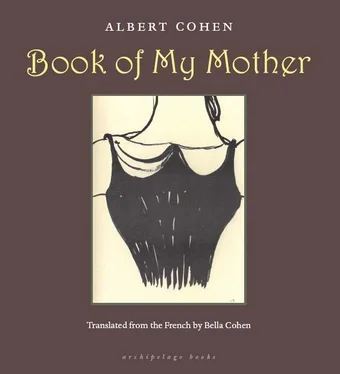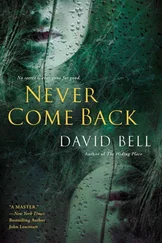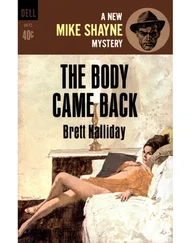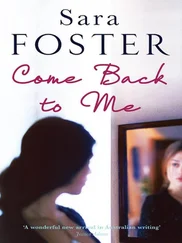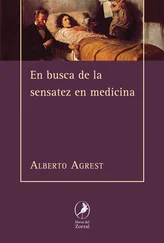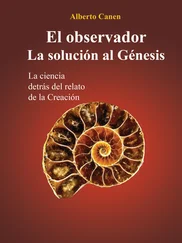Albert Cohen - Book of My Mother
Здесь есть возможность читать онлайн «Albert Cohen - Book of My Mother» весь текст электронной книги совершенно бесплатно (целиком полную версию без сокращений). В некоторых случаях можно слушать аудио, скачать через торрент в формате fb2 и присутствует краткое содержание. Год выпуска: 2012, Издательство: Archipelago Books, Жанр: Современная проза, на английском языке. Описание произведения, (предисловие) а так же отзывы посетителей доступны на портале библиотеки ЛибКат.
- Название:Book of My Mother
- Автор:
- Издательство:Archipelago Books
- Жанр:
- Год:2012
- ISBN:нет данных
- Рейтинг книги:5 / 5. Голосов: 1
-
Избранное:Добавить в избранное
- Отзывы:
-
Ваша оценка:
- 100
- 1
- 2
- 3
- 4
- 5
Book of My Mother: краткое содержание, описание и аннотация
Предлагаем к чтению аннотацию, описание, краткое содержание или предисловие (зависит от того, что написал сам автор книги «Book of My Mother»). Если вы не нашли необходимую информацию о книге — напишите в комментариях, мы постараемся отыскать её.
, which later grew into
. Achingly honest, intimate, moving, it is a tribute to all mothers.
Albert Cohen
Solal
Mangeclous
Belle du Seigneur
Les Valereux
Book of My Mother — читать онлайн бесплатно полную книгу (весь текст) целиком
Ниже представлен текст книги, разбитый по страницам. Система сохранения места последней прочитанной страницы, позволяет с удобством читать онлайн бесплатно книгу «Book of My Mother», без необходимости каждый раз заново искать на чём Вы остановились. Поставьте закладку, и сможете в любой момент перейти на страницу, на которой закончили чтение.
Интервал:
Закладка:
She would arrive firmly resolved never again to break her diet. But she did so constantly, without being aware of it, because infringements, though a daily occurrence, were always seen as exceptions. “I just want to know whether this pastry has turned out right.” “This almond paste doesn’t count, my son — it’s only an ant’s helping. It’s just for the taste — I must have just a mouthful to try, then I’ll stop craving. You must have heard that an unsatisfied craving makes you put on weight.” And, if I urged her to take her coffee without sugar, she would declare that sugar was not fattening. “Put some in water and you’ll see it disappear.” If a chemist’s scales showed that she had put on weight, it was because the scales were wrong or because she had moved while she was on them or because she had kept her hat on. There were always good reasons for a lavish meal. The day she arrived in Geneva it was because it was a red-letter day and she just had to celebrate. Another time it was because she felt a little tired and honey fritters give you energy. On another occasion it was because she had received a nice letter from my father. A few days later it was because she had not received a letter. Then it was because she would be leaving in a few days’ time. Or else because she did not want to be poor company for me by making me watch her eat a slimming dinner. She would tighten her corset a bit and that would do the trick. “And, anyway, I’m not a young girl to be married off.”
But if I chided her, she obeyed, convinced that I knew best, instantly shattered by the prospect of illness and believing me if I said that six months on a strict diet would give her a figure like a fashion model. She would then scrupulously refrain from eating all day long, sadly imagining the innumerable delights of slimness. If, suddenly smitten with pity and feeling that it was all to no purpose, I said that, all things considered, those diets were not really much use, she would hasten to agree: “You see, my son, I believe all those slimming diets make you depressed, and that makes you put on weight.” I would then suggest that we should go and eat in a first-class restaurant. “Oh yes, my son, let’s have a little fun before we die!” And, in her very best dress, carefree as a little girl, she would eat to her heart’s content with a clear conscience, since she had my approval. I would watch her and reflect that she was not long for this world and that she was entitled to a few little pleasures. I would watch her as she ate, absolutely in her element. Like a father, I would watch her little hands as they moved, as they moved then.
She was not in the least methodical, though she thought herself very organized. On one of my visits to Marseilles I bought her an alphabetical file and explained the ins and outs of it — telling her, for example, that gas bills should be filed under G. She listened earnestly, firmly resolved to follow my instructions, then began to file with a will. A few months later, in the course of another visit, I noticed that the gas bills were filed under S. “Because it’s more convenient for me,” she explained. “I remember things better that way.” The rent receipts had deserted R and emigrated to I. “My child, I must put something under I, and, anyway, isn’t there an I in ‘receipts’?” Gradually, she went back to her old filing system: the income-tax returns reappeared on the mantelpiece, the rent receipts under the bicarbonate of soda, the electricity bills beside the eau de cologne, the bank statements in an envelope marked “Fire Insurance,” and the doctor’s prescriptions in the horn of the old gramophone. When I remarked on this reversion to chaos, she smiled guiltily, like a child. “All that method muddled me up,” she said with downcast eyes. “But if you want me to, I’ll start filing again.” I blow you a kiss in the night — a kiss for you up there beyond the stars.
When we crossed the street in Geneva, she would simper a little. Since she was aware of her inborn clumsiness and had difficulty in walking, weakhearted mother of mine, she was terribly afraid of cars, terribly afraid of being run over, and she would cross under my guidance, concentrate hard on what she was doing, and bravely confront her terror. I would take a fatherly grip on her arm, and she would lunge, head down, with never a glance at the cars, eyes closed the better to follow my lead, completely given up to my steering, slightly ridiculous in her excessive haste and alarm, so anxious not to be run over and to go on living. Intent on her duty to remain alive, she would press on bravely, petrified but trusting utterly to my skill and power and sure that her protector would preserve her from harm. So awkward, poor darling. And what a mountaineering adventure it was when she boarded a tram. I used to laugh at her a little. She liked me to laugh at her. Now she lies stretched out in her sullen earthen sleep, she who was afraid of being run over, stretched out in plantlike lethargy.
On the tram in Geneva she liked to watch the knots of dear humans bent on survival who clambered on at each stop, to see the new arrivals sit down with satisfaction, like those two breathless girls who were smiling at each other, blissfully self-absorbed, as if congratulating each other because they had triumphed — that is to say, they had not missed the tram. To dear humans, those queer fish, everything that affects them is so important. My mother liked to watch them. It was the only form of social contact to which she had access. She had all-embracing insight. She even knew why that little office girl was looking so intently at the expensive soap she had just bought. “Poor thing,” she said, “that high-class soap is a comfort to her. It makes up for the grand life she can’t lead. It makes her feel she’s succeeded in life.” She speaks no more now. Sullen she lies in earthen melancholy.
All finished now, the long loitering strolls in Geneva with my mother, who walked with difficulty, and I was happy to respect her slow pace and I forced myself to walk even more slowly than she did in order to spare her fatigue and humiliation. She admired everything about her beloved Geneva and Switzerland. She was enthusiastic about that little country, sober and sound. Naïvely, she would conjure up for Switzerland dreams of world rule, plan a Swiss world empire. She said they ought to put good, sensible, highly conscientious, rather stern Swiss in charge of the government of every country. Then everything would be all right. Policemen and postmen would be clean shaven and their shoes well shined. Post offices would be spotless, houses flower-decked, customs officials pleasant, railway stations polished and repainted, and there would be no more wars. She admired the cleanness of the lake in Geneva. “Even their water is honest,” she would say. I can see her now, her mouth gaping as she read respectfully the inscription engraved on the façade of the university: “In dedicating this building to advanced study, the people of Geneva pay tribute to the virtues of education, the ultimate guarantor of their freedoms.” “How beautiful that is,” she murmured. “Just look at the fine words they managed to find.”
All done now, our aimless meandering past the shop windows of Geneva. To put her at ease, I would become quite Balkan when I was with her. We may even have eaten salted pistachio nuts surreptitiously in the street, like a couple of cronies from the Mediterranean whose affection did not need high-minded talk and elegant posturing and who could just let their hair down and loiter. How quickly walking tired her! That slow walk was already a funeral march, the beginning of her death.
We would walk slowly, and she would suddenly confide to me, her best friend, a thought which she considered important. “You see, my son, men are animals. Just look at them — they have paws and sharp-pointed teeth. But one day in ancient times, Moses, our master, came along and decided in his head to turn those beasts into men, into children of God, through the Holy Commandments, you see. He told them, ‘You must not do this, you must not do that — it’s wicked. Animals kill, but you must not kill.’ In fact, I believe it was Moses who invented the Ten Commandments while strolling on the top of Mount Sinai to think more clearly. But he told them it was God, to impress them, you see. You know what our Jews are like — they must always have what is most expensive. When they’re ill, they send straightaway for the most celebrated professor of medicine. So Moses, who knew them well, said to himself, ‘If I tell them the Commandments come from the Lord, they’ll pay more attention to them, they’ll have more respect for them.’”
Читать дальшеИнтервал:
Закладка:
Похожие книги на «Book of My Mother»
Представляем Вашему вниманию похожие книги на «Book of My Mother» списком для выбора. Мы отобрали схожую по названию и смыслу литературу в надежде предоставить читателям больше вариантов отыскать новые, интересные, ещё непрочитанные произведения.
Обсуждение, отзывы о книге «Book of My Mother» и просто собственные мнения читателей. Оставьте ваши комментарии, напишите, что Вы думаете о произведении, его смысле или главных героях. Укажите что конкретно понравилось, а что нет, и почему Вы так считаете.
